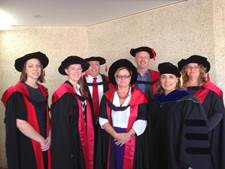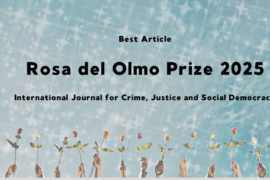
Ten staff from the School of Justice, Faculty of Law are attending the – Annual Conference of the American Society of Criminology being held in San Francisco, United States 17 – 21 November, 2014. John Scott will present a paper on how Technology is changing the way the sex industry operates. At this ASC there are many celebrations of the 30 year anniversary of the American Society of Criminology, Division of Women and Crime. Kerry Carrington is chairing and participating in a round table on the future of feminist criminology, co-hosted between the Division of Critical Criminology and the Division of Women and Crime. Molly Dragiewicz will also be participating in a Thematic Panel to celebrate 30 years anniversary of the Division of Women and Crime. The panel will reflect on the state of feminist criminology at the time of founding, through the current status of the field, as well as future direction. Jodi Death will be discussing her original research on Child Sexual Abuse in Christian Institutions. Sharon Hayes reports on a study of sexual assault of women in ‘everyday’ situations, such as the cinema, shopping and public transport. Given the high cost of cigarettes, with a tax of $1 for each smoke, Mark Lauchs presents his research into the growing market of cheaper illicit tobacco in Australia. Belinda Carpenter and Carol Quadrelli (with colleagues Gordon Tait and Michael Barnes, NSW state Coroner), present their findings form Australian Research Council Linkage project into Coronial narratives of Indigenous death. They explore how coronial decision makers (coroners, police officers, police liaison officers, forensic pathologists, coronial counsellors and coronial nurses) render cultural differences invisible in death investigations. Using Foucault, Angela Dwyer analyses how historical narratives of policing LGBTIQ people, emerge, re-emerge such that they are never erased. The paper takes as its example the policing of Gay and Lesbian Mardi Gras in Sydney, Australia, in 2013. Angela Dwyer and Mathew Ball report some of the first results of their Criminology Research Council funded study of LGBTIQ police liaison officers, in two separate papers.




Comments are closed.